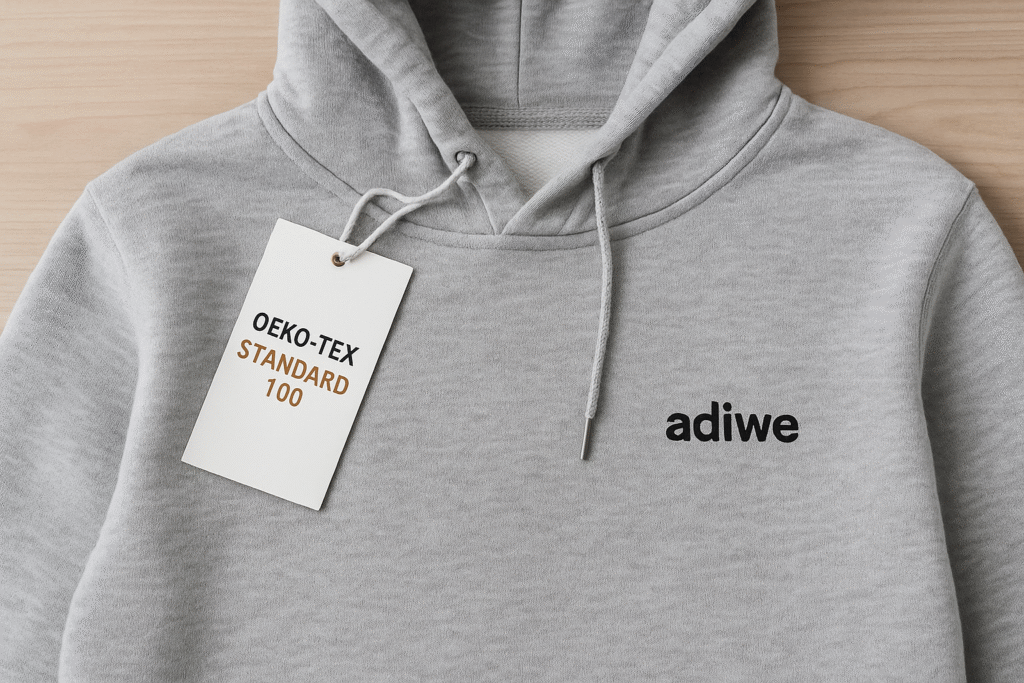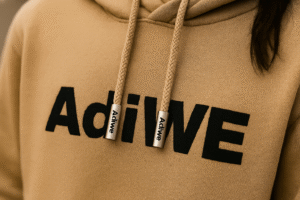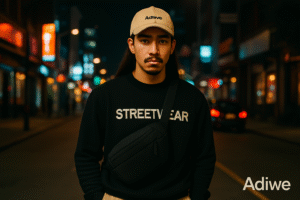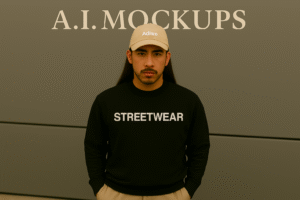Worried about partnering with a manufacturer that can't back up their claims? It's tough to verify quality and ethical practices from afar. I'll guide you through the key certifications that signal a trustworthy streetwear supplier.
A reputable streetwear manufacturer should ideally have certifications like ISO 9001 for quality management, social compliance audits (e.g., WRAP, BSCI, SA8000) for ethical production, and potentially environmental certifications (e.g., GOTS, Oeko-Tex) for sustainable practices.
Finding the right manufacturing partner is crucial for any streetwear brand. You're not just looking for someone to produce clothes; you're looking for a partner who aligns with your values and quality standards. This is especially true for brands targeting discerning customers in North America, England, and France. My clients, including established brands and keen buyers like Fifty Fifty from England, often ask me about certifications. They know these credentials are not just pieces of paper; they are indicators of a factory's commitment to excellence and responsibility. At Adiwe, we understand this, and while we continuously work on our own certifications, we also help clients navigate what to look for. Let's explore the certifications that matter.
Why Are Quality Management Certifications Like ISO 9001 Important for Streetwear Production?
Concerned about inconsistent product quality ruining your brand's reputation? Receiving a batch of hoodies that don't meet your standards can be a costly nightmare. Let's see how ISO 9001 can prevent this.
ISO 9001 is vital for streetwear as it signifies a manufacturer's commitment to consistent quality control processes, customer satisfaction, and continuous improvement, ensuring your designs are reliably produced to your specifications.
Quality is non-negotiable in streetwear, especially when you're offering personalized designs and aiming for a premium feel. I always emphasize to my clients that a manufacturer's internal processes are just as important as their machinery. ISO 9001 is an internationally recognized standard for Quality Management Systems (QMS). It’s not product-specific, but rather focuses on how a company manages its processes to consistently meet customer requirements and enhance customer satisfaction. For a factory like Adiwe, with our 5 production lines, having robust quality systems is fundamental.
Key Aspects of ISO 9001 for Streetwear:
- Process Approach: ISO 9001 requires manufacturers to identify, understand, and manage interrelated processes. For streetwear, this means every step, from sourcing customizable fabrics and accessories to cutting, sewing, printing, and final inspection, is part of a controlled system.
- Customer Focus: A core principle is meeting and exceeding customer expectations. This aligns perfectly with what we do at Adiwe, where we strive to fully reproduce complex designs for clients like Fifty Fifty, ensuring their vision for top quality is realized.
- Continuous Improvement: The standard encourages a culture of ongoing improvement. This means the manufacturer is always looking for ways to make their production more efficient, reduce errors, and enhance product quality. This is critical when dealing with very trendy items that might require new techniques or craftsmanship.
- Documentation and Record Keeping: Proper documentation ensures that processes are followed consistently and provides traceability. If an issue arises, it's easier to identify the cause and implement corrective actions.
For your streetwear brand, a manufacturer with ISO 9001 certification offers greater assurance that your hoodies, t-shirts, and other garments will be produced to a consistent standard, order after order. It shows they are serious about quality control, a key sourcing point for any brand.
How Do Social Compliance Certifications Ensure Ethical Streetwear Manufacturing?
Worried your streetwear might be made in unethical conditions? Brand image can be severely damaged by associations with poor labor practices. Social compliance certifications offer a way to verify ethical operations.
Social compliance certifications like WRAP, SA8000, or BSCI audits confirm that a streetwear manufacturer adheres to ethical labor standards, including fair wages, safe working conditions, and no forced or child labor.
In today's conscious consumer market, especially in North America and Europe, ethical production is not just a preference; it's often a demand. As a brand owner, you want to be confident that the people making your products are treated fairly. This is something I feel strongly about at Adiwe. While we operate in China, we are committed to responsible practices. Social compliance certifications, or regular audits against recognized standards, provide this assurance.
Common Social Compliance Standards:
- WRAP (Worldwide Responsible Accredited Production): Focuses on the apparel, footwear, and sewn products sectors. It's based on 12 principles covering areas like prohibition of forced labor, child labor, harassment or abuse, compensation and benefits, hours of work, health and safety, and freedom of association.
- SA8000 (Social Accountability 8000): A broader standard applicable to various industries, it focuses on workers' rights and decent working conditions. It’s based on UN conventions, ILO conventions, and national laws.
- BSCI (Business Social Compliance Initiative): An initiative driven by companies to improve working conditions in their global supply chains. It provides a common code of conduct and a system for monitoring and improving social standards.
These certifications involve regular audits by independent third parties. They check payroll records, interview workers, and inspect the factory environment. For your brand, partnering with a manufacturer that holds or actively works towards these certifications means you can confidently tell your customers that your streetwear is made ethically. This addresses a major pain point for brands who are concerned about the reputation and values associated with their sourcing. It’s about building trust not just with your manufacturer, but also with your end consumers.
What Do Environmental Certifications Indicate About a Streetwear Manufacturer's Practices?
Is your brand aiming for sustainability, but unsure how to vet a manufacturer's green claims? Using unsustainable materials or processes can alienate eco-conscious customers. Let's look at certifications that signal environmental responsibility.
Environmental certifications like GOTS (for organic textiles), Oeko-Tex Standard 100 (for harmful substances), or Bluesign (for sustainable textile production) indicate a manufacturer's commitment to minimizing environmental impact and using safer materials.
!
The demand for sustainable and eco-friendly fashion is growing rapidly. Your customers, especially younger demographics who often drive streetwear trends, are increasingly aware of the environmental impact of their purchases. As a brand, aligning with these values can be a significant differentiator. At Adiwe, we understand the importance of customizable fabrics, and this includes offering more sustainable options. Environmental certifications help verify a manufacturer's claims.
Key Environmental Certifications for Textiles:
- GOTS (Global Organic Textile Standard): This is a leading standard for organic fibers. It ensures the organic status of textiles, from harvesting of raw materials, through environmentally and socially responsible manufacturing, up to labelling. This is crucial if you want to market your t-shirts or hoodies as "organic."
- Oeko-Tex Standard 100: This is one of the world's best-known labels for textiles tested for harmful substances. If a textile article carries the Standard 100 label, you can be certain that every component, i.e., every thread, button, and other accessory, has been tested for harmful substances and that the article therefore is harmless in human ecological terms. This is highly relevant for items like hoodies and t-shirts that are worn close to the skin.
- Bluesign® System: This standard takes a holistic approach, focusing on resource productivity, consumer safety, water emissions, air emissions, and occupational health & safety throughout the entire textile supply chain. A Bluesign® Approved fabric means it was made with the lowest possible impact on people and the environment.
Having a manufacturer who can work with or source materials certified to these standards allows you to offer products that are not only trendy and feature top quality craftsmanship but are also kinder to the planet. This can be a powerful selling point, especially for export to markets in North America and Europe.
Are Product-Specific Certifications Necessary for Streetwear Items Like Hoodies or T-shirts?
Wondering if general factory certifications are enough, or if you need specific assurances for your actual products? Sometimes, particular materials or product types benefit from targeted testing and certification.
Yes, product-specific certifications like Oeko-Tex Standard 100 are highly beneficial for streetwear, as they test the final textile products (like hoodies and t-shirts) for harmful substances, ensuring they are safe for consumer use.

While factory-level certifications like ISO 9001 or social compliance audits tell you about the manufacturer's systems and ethics, product-specific certifications provide assurance about the actual items you're selling. For streetwear like t-shirts and hoodies, which are worn directly against the skin, this is particularly important. I always advise clients, especially those like Fifty Fifty who focus on quality and sell to young people, to consider the safety and composition of their materials.
Focus on Oeko-Tex Standard 100:
As mentioned earlier, Oeko-Tex Standard 100 is a key product-specific certification for textiles.
- Testing Scope: It tests for a wide range of regulated and non-regulated substances which may be harmful to human health. This includes pesticides, carcinogenic dyestuffs, heavy metals, formaldehyde, and more.
- Component Testing: Importantly, it’s not just the main fabric that gets tested. Every component, from threads and linings to prints, buttons, and zippers, must meet the criteria. This comprehensive approach ensures the entire garment is safe.
- Confidence in Textiles: For brands, this certification offers "Confidence in Textiles," which is Oeko-Tex's tagline. It provides a tangible way to demonstrate your commitment to product safety and quality.
Other Product Considerations:
- Fabric Composition Tests: Beyond safety, you might want independent lab tests to verify fabric composition (e.g., 100% cotton, specific blend ratios) or performance characteristics (e.g., colorfastness, shrinkage). This adds another layer of quality control.
- Specialized Finishes: If your streetwear involves special finishes (e.g., water-repellent coatings, flame retardants), you might look for specific certifications or tests related to those treatments to ensure both performance and safety.
At Adiwe, we can facilitate sourcing Oeko-Tex certified fabrics or arrange for product testing as part of our commitment to providing top quality, personalized design with customizable fabrics. This ensures that the final hoodies and t-shirts you receive meet your brand’s high standards and your customers' expectations for safety and quality.Conclusion
Certifications offer valuable assurance of a manufacturer's quality, ethical practices, and environmental responsibility. They help build trust and ensure your streetwear brand is built on a solid foundation of responsible sourcing.




